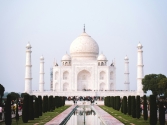How Donald Trump's views on the TPP could sink Singapore
By Kim IskyanBillionaire US presidential candidate Donald Trump last year called the Trans- Pacific Partnership (TPP) a "horrible deal."
Trump doesn’t like the TPP, of which Singapore is a founding signatory. He called it "A deal that was designed for China to come in, as they always do, through the back door and totally take advantage of everyone."
Trump might not be wrong here. Because the TPP is one of the biggest free trade deals ever drafted, and because China is being excluded from it, China may be trying to take advantage of it through the "back door."
TPP negotiations began back in 2006. The 12 countries that signed the accord account for approximately 25% of global exports and 40% of world GDP. If it comes into effect, each participating country could see its GDP climb 1.1% by 2030, according to the World Bank.
Singapore stands to be a major beneficiary of the deal as well. Singapore is a trading nation. As noted below, Singapore’s total trade as a percentage of GDP was 351% in 2014 and 326% in 2015 – it’s been over 300% for a quarter of a century. For comparison, the figure for the US in 2015 was 28%.
So anything that will affect Singapore’s ability to do business with the rest of the world will have a big impact on the economy.
America's view of the TPP
But the TPP is not popular with Americans or with the current US presidential candidates. Donald Trump has promised to scrap the deal outright, while Hillary Clinton, who was involved in the TPP negotiations when she was America’s top diplomat, has said she wants to improve the deal and will probably change it.
President Barack Obama hopes that he can push the deal through Congress by the end of 2016. But with it being an election year, the deal may not be approved until after the US presidential election in November.
China's trade deals
It’s been estimated that if the TPP passes, China will miss out on $46 billion in investment and trade every year. In reality, however, China already has several free trade agreements (FTAs) with most of the countries that are part of the TPP – including Singapore.
In 2008, Singapore (and New Zealand) signed a free trade agreement with China. This followed FTAs signed by China with Australia and Chile in 2006. In 2015, China and ASEAN, which also includes Singapore, and Malaysia and Vietnam and Brunei (all TPP members) signed a free trade agreement.
This means China has made trade deals with two-thirds of the TPP members. These deals are not as comprehensive as the TPP, but they’re a solid foundation. And they make China’s exclusion from the TPP matter less.
The TPP doesn’t prevent China from investing in businesses in TPP member countries. The terms of the TPP say that a third-party country can invest in, and be involved in the business transactions of, a business located in a TPP member country.
This could be why China increased investment in ASEAN countries by 353% during the TPP negotiations from 2006 to 2014. And Singapore was China’s second favourite investment destination in 2015, according to the Economist Intelligence Unit’s 2015 China Going Global Investment index (behind, ironically, the US).
China is involved in other trade deals as well. These deals involve multiple countries and could almost match the TPP in size.
China's other deals
For instance, China is taking the lead in the Regional Comprehensive Economic Partnership (RCEP). This deal, which is still being negotiated, includes the 10 ASEAN countries (including Singapore), China, and TPP members Australia, Japan, and New Zealand.
There is also the One-Belt, One-Road initiative – an effort to build a modern-day silk road. The proposed project will connect Asia to Europe and parts of Africa. It could end up costing $8 trillion and will make it easier for China to trade with the majority of the world’s population.
To further expand its influence, China has also established the Asian Infrastructure Investment Bank (AIIB) to provide funds to needy countries. It was established to rival the World Bank, which is viewed as a tool of the West (and is headquartered in Washington, DC).
Fifty-seven countries are already AIIB signatories, including many traditional US allies. The US and Japan are the only major countries that haven’t signed on.
Like Trump has said, China is set up to take advantage of the TPP via the back door. Its many trade agreements with countries like Singapore, that are also TPP members, keep it insulated from any negative effects of the TPP.
But if the deal is scuttled by a President Trump, Singapore will feel the effects from the decision’s impact on global trade.
(On the subject of Trump… find out how he could affect Asia, whether or not he becomes the American president – and how you can protect your portfolio, by clicking here.)
Sign up below to receive the Truewealth Asian Investment Daily, a free e-letter that brings you independent insight on investing in Asia that will save you time and make you money...



























 Advertise
Advertise










